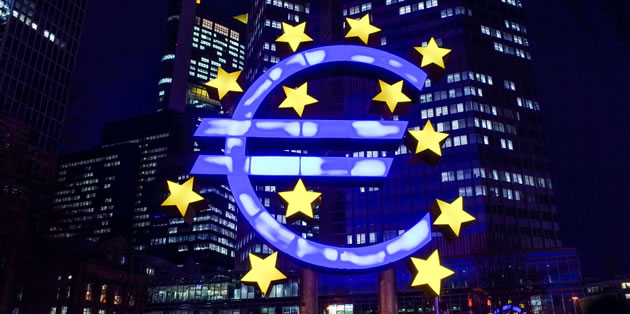The Euro to Pound Sterling (EUR/GBP) exchange rate firmed on Thursday following the release of mixed economic data from the Eurozone.
The Euro to Pound Sterling (EUR/GBP) exchange rate was trading in the region of 0.7120
As Thursday’s session got under way, the Euro recovered some ground against the Pound and other major peers as economists deemed the currency’s recent sharp falls as being overdone.
The currency then received support from data out of Germany, which showed that inflation in Europe’s largest economy climbed back into positive territory in February as consumer prices were shown to have risen by 0.1%.
A separate Harmonised Index of Consumer Prices- the measurement used by the European Central Bank – showed that inflation in the nation remain in negative territory and well below its inflation target of just under 2%.
The data raised hopes that the Eurozone will manage to avoid sliding into deflation. Inflation across the region is forecast to show signs of improvement over the coming months following the launch of the ECB’s €1.1 trillion quantitative easing programme. Oil prices too are likely to begin to move upwards as the market begins to balance out following a period of sharp declines in the commodity’s value.
Data out of the UK then came in positively as it showed that the nation’s trade deficit narrowed sharply in the first month of 2015. According to the London based Office for National Statistics (ONS), the UK’s total deficit narrowed from £2.14 billion to £616 million. The positive data goes some way in showing that the nation’s reliance on domestic consumers is easing.
Shortly after the UK data, came another report from the Eurozone, which showed that industrial production in the region dipped on a monthly basis but improved strongly on an annual basis. According to Eurostat, production dipped by 0.1% in January missing analyst forecasts. On a yearly basis however, production surged by 1.2%, smashing forecasts for a figure of just 0.1%.
Looking ahead, the Euro is forecast to remain lower against the Pound as the ECB’s quantitative easing programme and concerns over Greece are set to weigh on the currency. The diverging monetary policies of the ECB and Bank of England will also keep the single currency weaker.
On the longer term, we can expect to see the Pound soften, as the outcome of the upcoming UK general election vote is far from clear.



